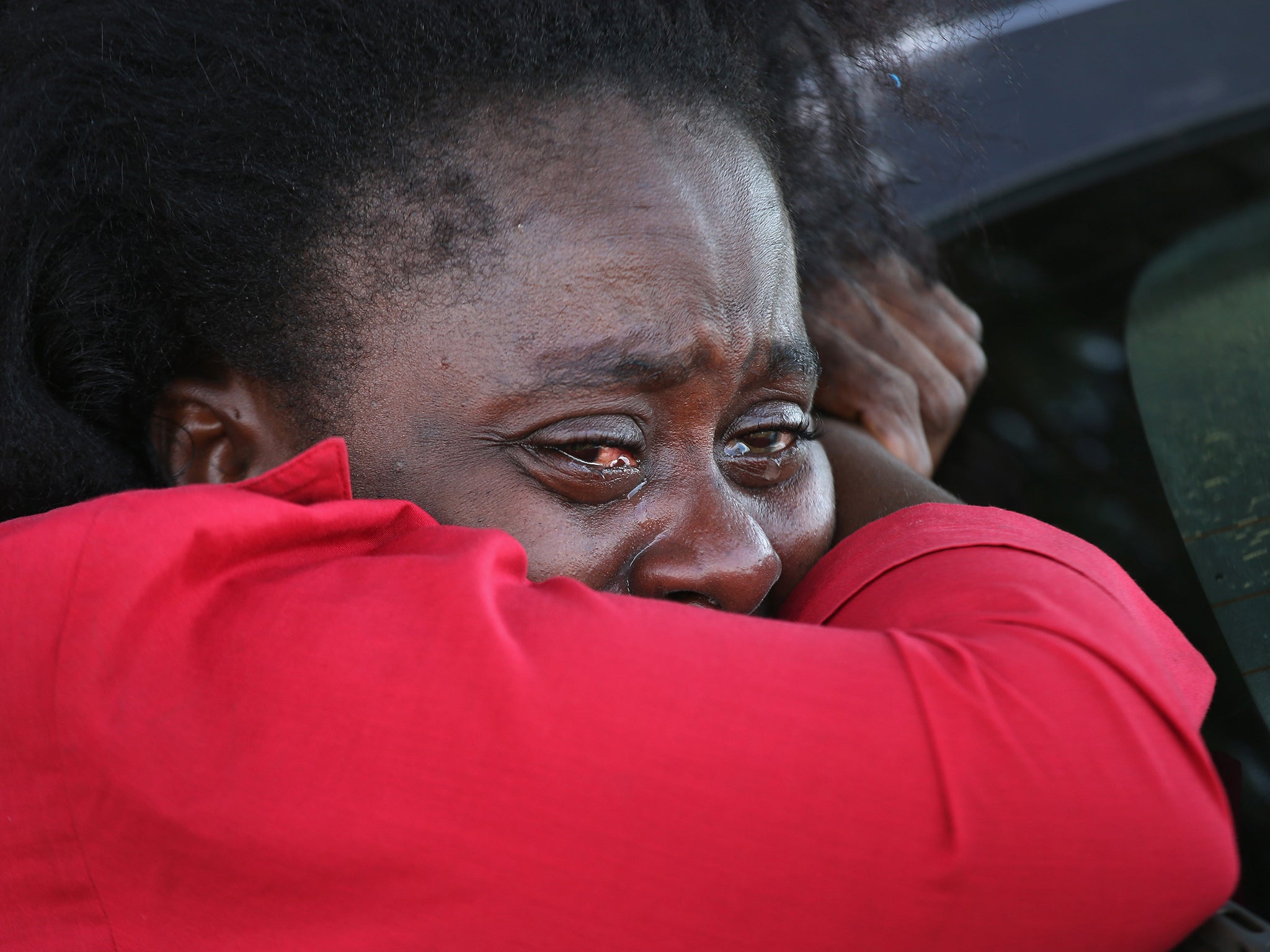Ebola outbreak: We’re not doing enough to stop the spread of the virus, President Obama warns UN General Assembly
Sierra Leone has announced it is placing another one million of its inhabitants under forced quarantine

Your support helps us to tell the story
From reproductive rights to climate change to Big Tech, The Independent is on the ground when the story is developing. Whether it's investigating the financials of Elon Musk's pro-Trump PAC or producing our latest documentary, 'The A Word', which shines a light on the American women fighting for reproductive rights, we know how important it is to parse out the facts from the messaging.
At such a critical moment in US history, we need reporters on the ground. Your donation allows us to keep sending journalists to speak to both sides of the story.
The Independent is trusted by Americans across the entire political spectrum. And unlike many other quality news outlets, we choose not to lock Americans out of our reporting and analysis with paywalls. We believe quality journalism should be available to everyone, paid for by those who can afford it.
Your support makes all the difference.Amid a barrage of grim predictions about the further “spiralling out of control” of the Ebola outbreak in West Africa, Barack Obama told delegates at the United Nations that while the world had started to launch its response, it was still lacking. “We need to be honest with ourselves,” he said. “It’s not enough.”
The President’s warning was echoed by successive speakers attending a special high-level meeting on the disease at the annual United Nations General Assembly. Speakers also warned of the wider risks for Africa, and for the economic development and political stability of many of its countries. “We’re facing nothing less than the total meltdown of this continent,” the World Bank Group’s president, Jim Yong Kim, declared.
There was applause in the room when Mr Kim said the World Bank would double its financial contribution to helping to confront the disease to $400m (£245m). “We can stop this epidemic,” he insisted, but “we need to act now.”
The meeting was held against the backdrop of new estimates by the World Health Organisation (WHO) of about 6,200 cases of Ebola in five different countries in the region. Of those, almost half have died. Those most touched by the crisis are Sierra Leone, Liberia and Guinea. Last week, the UN Security Council declared Ebola a threat to global peace and security, the first time it had debated a medical emergency since the first outbreak of HIV/Aids.
Sierra Leone announced today that it was taking the step of placing another one million of its inhabitants under forced quarantine, meaning that restrictions on travel are now affecting about one-third of the country’s population of six million.
“There is a desperate need to step up our response to this dreaded disease,” the government said. “The prognosis is that without additional interventions or changes in community behaviour, the numbers will increase exponentially and the situation will rapidly deteriorate.” Among those warning of a potential explosion of new cases unless urgent action is taken was Margaret Chan, the head of the WHO. The virus, she said, is “still running ahead, jumping over everything we put in place to slow it down”.
Last week, Mr Obama announced that he was sending 3,000 troops to West Africa to help to set up command and control for the response effort. But he was clear that more was needed. “There’s still a significant gap between where we are and where we need to be,” Mr Obama told the meeting.

“Ebola is a horrific disease,” he said. “It’s wiping out whole families. And it has turned simple acts of love and comfort – like holding a sick friend’s hand, or embracing a dying child – into potentially fatal acts. If ever there were a public-health emergency deserving of an urgent, strong and co-ordinated international response, this is it.”
The meeting had been convened by Ban Ki-moon, the UN Secretary General, in the hope of galvanising countries and institutions into giving more funds to fight the disease. Mr Kim of the World Bank Group said he had returned to its board in recent days to plead for the doubling of the funds. “The potential implications of this for the entire continent of Africa are so severe that we will simply have to do whatever it will take to mount a response,” he said.
Several international charities also attended the meeting. The outbreak could “set back development in the fragile states of Liberia, Sierra Leone and Guinea by decades”, warned Justin Forsyth, of Save the Children. “There [are] only a few weeks to act if we are to prevent this crisis spiralling out of control.”
Join our commenting forum
Join thought-provoking conversations, follow other Independent readers and see their replies
Comments